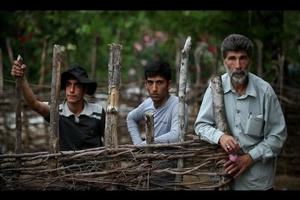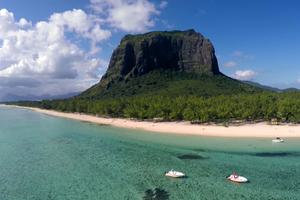Located 1,200 miles off the southeastern coast of Africa, Mauritius — population 1.35 million — was once a tropical marine paradise with miles of lagoons filled with healthy coral reefs, a largely undeveloped shoreline, and hundreds of fish species that supported a thriving artisanal fishery. But overfishing, rapid population growth, coastal development, and, most recently, severe coral bleaching have taken a major toll on the marine life of this Indian Ocean island.
In their documentary film, “Vey Nou Lagoon” — the third-place winner of the Yale Environment 360 Video Contest — videographer Vanina Harel and conservationist Zara Currimjee tell the story of the fishermen, scientists, and government officials who are battling to turn around the situation on Mauritius. Focusing on several of Mauritius’ fishermen, the film describes how the creation of marine protected areas and the introduction of stricter fishing regulations have begun to have a positive impact.
But, as the film makes clear, there is still a long way to go. “People do whatever they want — they feel entitled,” says Fi Myrthe, an oysterwoman, of the continuing scramble for depleted fisheries resources on Mauritius. “There is such a lack of education.”
About the Filmmakers: Washington, D.C.-based Vanina Harel is a recipient of a National Geographic Young Explorer’s Grant and has an MFA in film and electronic media from American University. She has produced documentaries and media campaigns for Maryland Public Television, the Center for Environmental Filmmaking, the Price Foundation Charitable Trust, and Youth for African Wildlife. Zara Currimjee, a native of Mauritius, works for the marine conservation non-profit, Oceana. She has previously worked on the science, policy, and legal aspects of marine conservation for the Waitt Institute, the Ocean Foundation, and the Environmental Law Institute.
About the Contest: The Yale Environment 360 Video Contest honors the year’s best environmental films, with the aim of recognizing work that has not previously been widely seen. Entries for 2018 were received from six continents.



